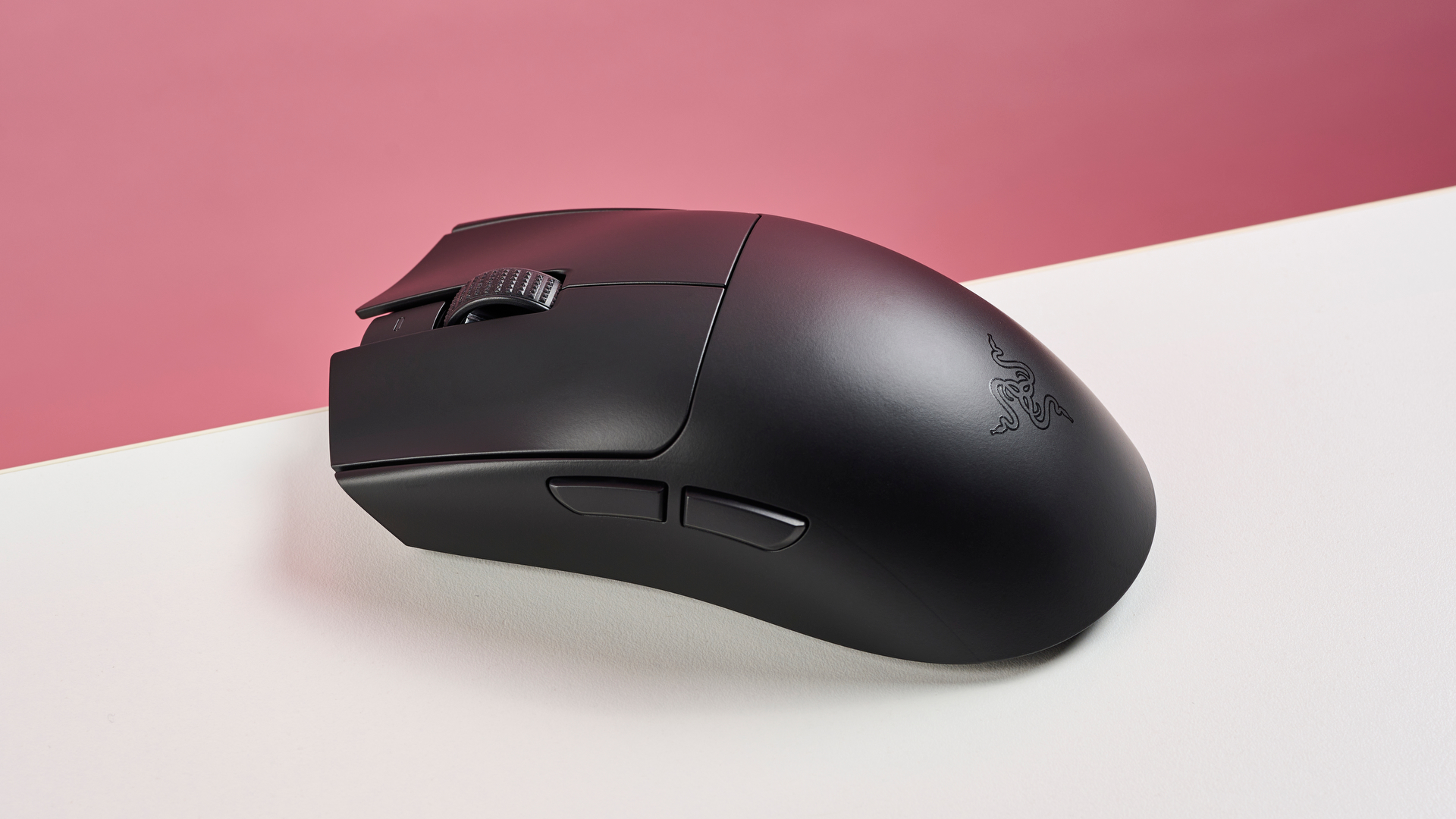
Razer Viper V3 Pro review
The Razer Viper V3 Pro, as the name implies, is touted as a gaming mouse fit for professionals, with endorsements and development feedback from various esports stars. A follow-up to the Viper V2 Pro, the V3 is even lighter and has a new optical sensor for purportedly greater precision and control.
For a gaming peripheral, the Razer Viper V3 Pro's styling isn’t as brash as you might expect. It seems that Razer has toned down its adolescent designs for the most part, and the Viper V3 Pro continues in this newly established tradition. It's very minimal and sleek, with just a single instance of the Razer logo, positioned toward the back. It's barely visible on the black variant, as the outline is almost the same shade as the finish. On the white model, the logo remains black, but it’s still pleasantly restrained.
At just 54g (55g for the white variant), it’s very easy to maneuver, helped by the wide PTFE feet that make for frictionless gliding across multiple surfaces, including glass at least 4mm thick.
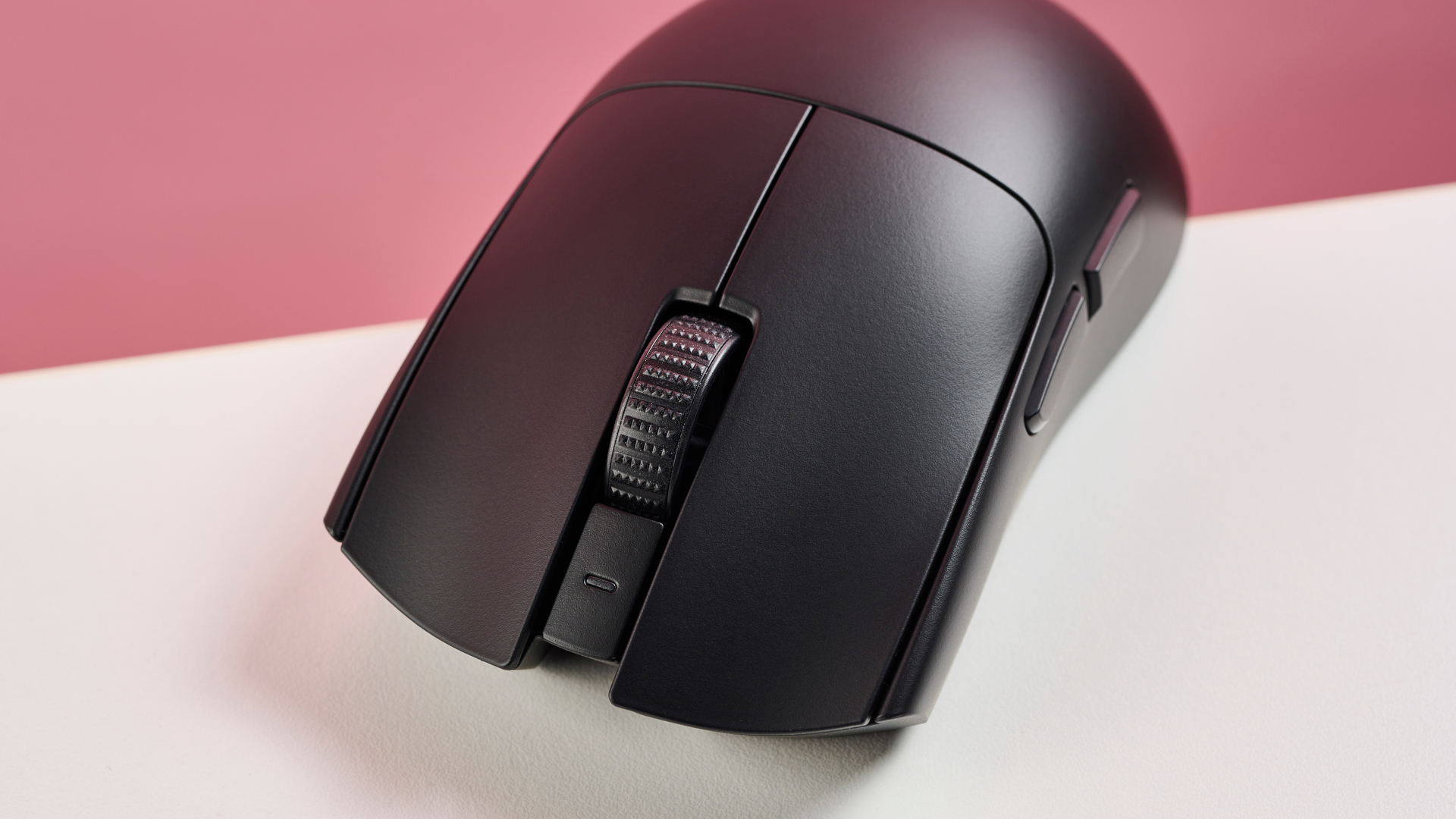
The low overall weight means acceleration is very fast – ideal for rapid swipes with low DPI settings – so it can hold its own against many of the best gaming mice when playing tactical shooters and the like. I did find the sharp cursor movement quite jarring at first, though.
To help with this issue, you can adjust the tracking cut-off height in the free Razer Synapse software, which offers to install itself as soon as you connect the Viper V3 Pro. Synapse is a historically wonky piece of software, but it does the job well here. Higher settings reduce the snappiness of cursor movements, and you can even toggle asymmetric cut-off values, letting you set different height values for lift-off and landing. The V3 has 26 height adjustment values, whereas the V2 only had three, courtesy of the second-generation Razer Focus Pro Optical Sensor.
The Viper V3 Pro feels slender in the hand and the overall shape seems to accommodate various grip styles. It also comes with optional grip tape you can adhere to the sides and mouse buttons, should you prefer that extra level of tactility. However, the hump in the middle is quite pronounced, which made me curl my hand more than I’m accustomed to, and forced me away from a fuller grip in the palm, so those who prefer this may want to take note.
The mouse buttons feel snappy and only require a light press, yet they are well-dampened and lubed, with a satisfying click that provides good feedback for your actions. There are indentations on both buttons to keep your fingers in position, which I found improved comfort during long sessions.
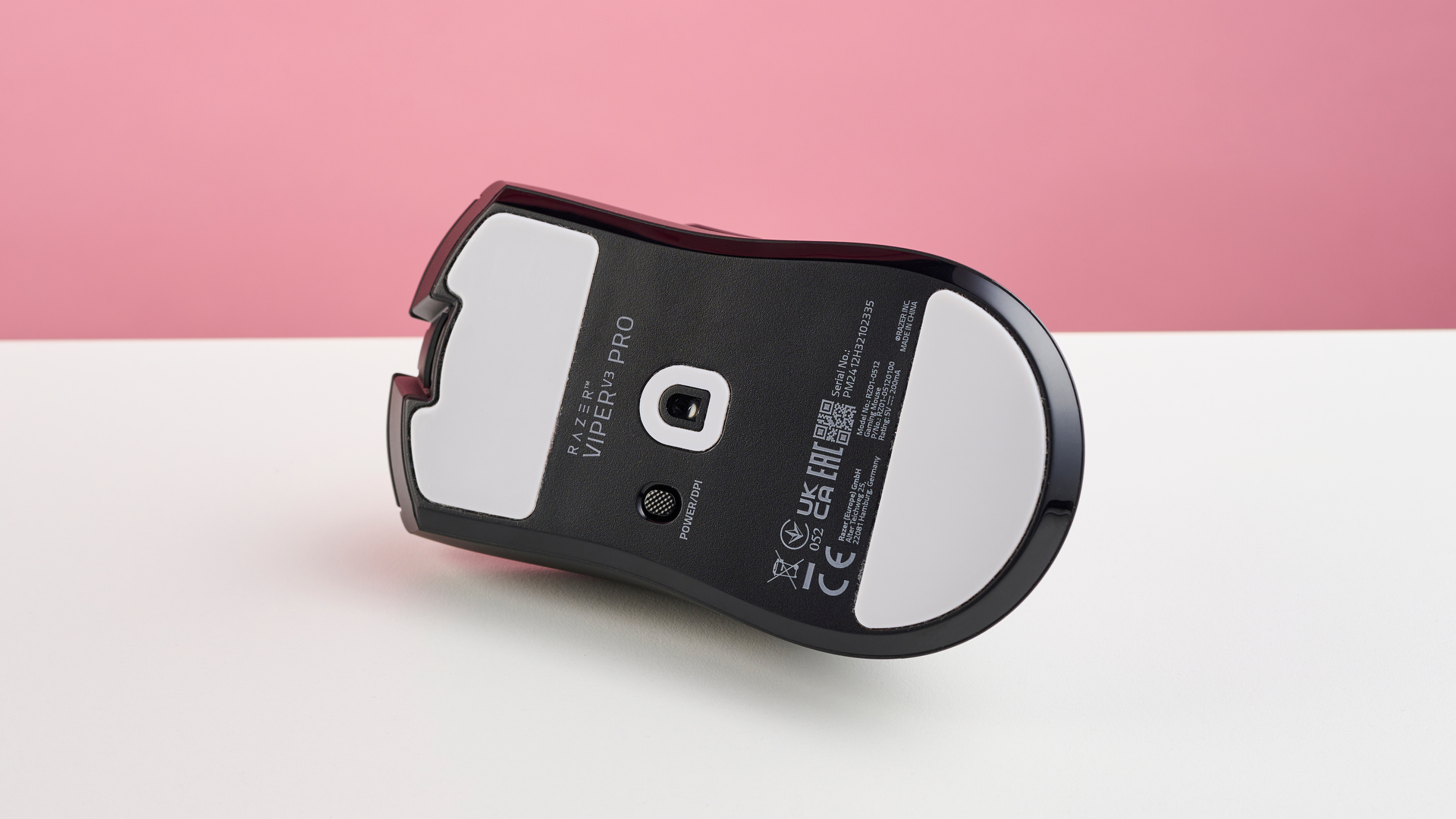
A pair of side buttons and a scroll wheel are the only extra topside features, but they perform excellently. The buttons are easy to use in the heat of the moment, being large and responsive enough to be found and pressed easily with the thumb. The scroll wheel is tightly notched while still being smooth, making for quick and accurate selections every time. The lack of a fast-scrolling mode, however, was a minor gripe of mine away from gaming, as navigating web pages and documents can feel too slow at times.
Pressing down on the scroll wheel button is incisive and tactile, and like the main mouse buttons, it's pre-lubed for smoother actuation. It gave me the confidence to use it without fear of accidentally scrolling the wheel. There's no side tilt input function, but for most gamers, this would've been an unnecessary inclusion.
The Viper V3 Pro is capable of DPI resolutions all the way up to 35,000, an increase over the V2, which peaked at 30,000. Settings this high, though, will frankly be unusable in most cases. If you’re using an 8K monitor, it may prove useful, but these remain rare, especially in the competitive gaming world, where 1080p and 1440p resolutions still reign supreme. The lowest possible DPI setting is 100, and the adjustments are available in single increments using Synapse software – another improvement over the V2 – meaning any gamer will be able to dial in the perfect amount of precision. The X and Y axes can also be adjusted independently.
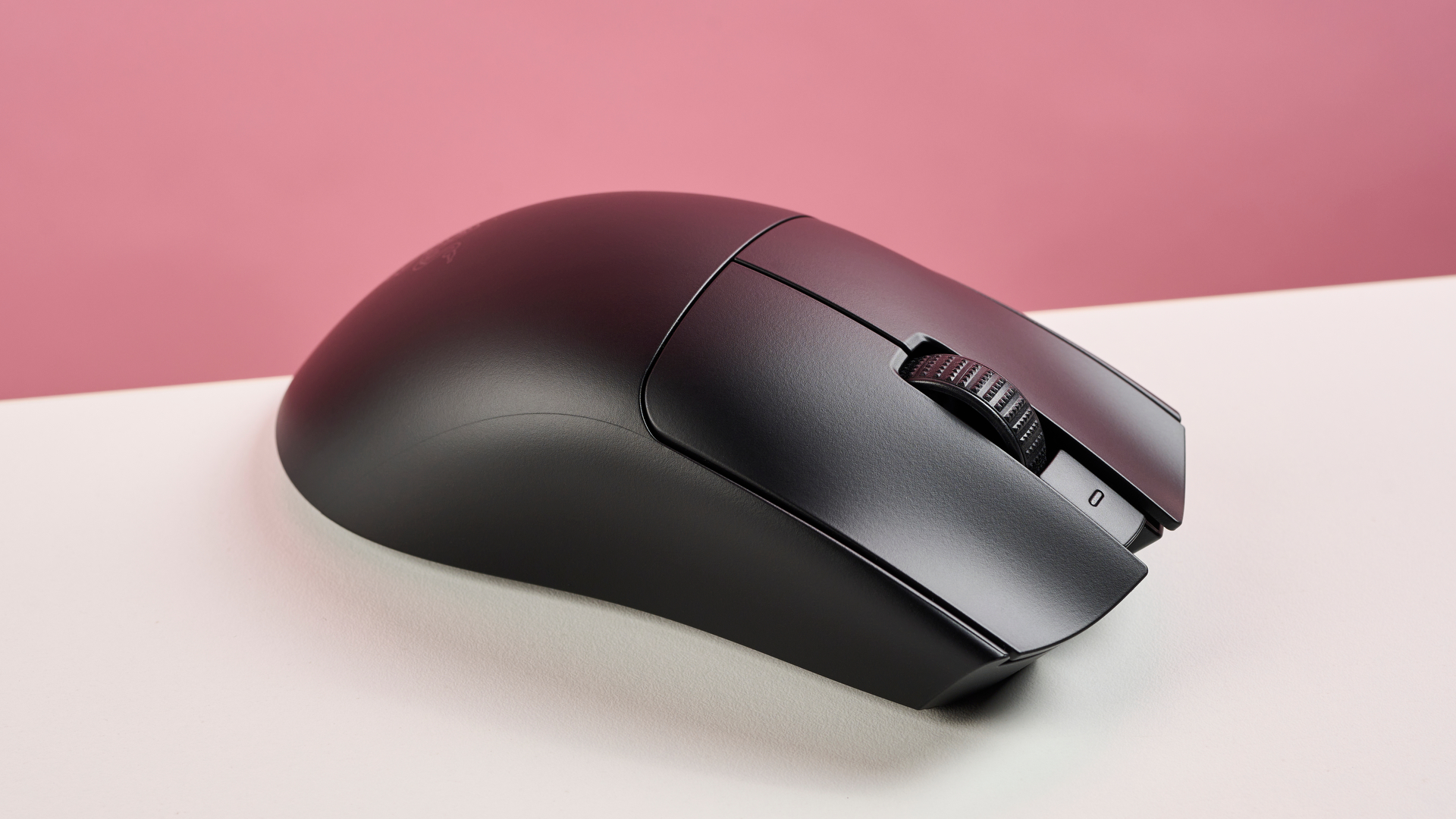
The DPI/power switch is on the underside of the mouse, which some may find inconvenient. But if you're a pro-level player, you want your mouse to be as utilitarian as possible, without any unnecessary accouterments that might interfere with gameplay. I was also able to wrap my middle finger underneath if I needed to adjust it since it's positioned to the right-hand side, making for easier access.
The Viper V3 Pro can be connected wirelessly or with the included USB-C cable. However, due to the thickness of the cable, I found it caused a noticeable amount of drag, which is particularly bothersome given the extremely light weight of the mouse itself.
Using the Viper V3 Pro wirelessly is certainly a better experience. The included dongle (there’s no Bluetooth or Wi-Fi connectivity) can elevate the poll rate all the way up to 8,000Hz (which Razer dubs “HyperPolling”), whereas a wired connection maxes out at 1,000Hz. This isn't a case where the dongle is a tiny USB attachment; here, it's a full-length cable with a transmitter on one end that needs to be placed near the mouse. Thankfully, due to the length of the USB cable, the dongle can be positioned comfortably within a desktop setup for minimal interference. During my time in this mode, I had nothing but flawless connectivity, with no dropouts or noticeable lag whatsoever.
Razer claims that the Viper V3 Pro battery life can last up to 95 hours, and I have to say that during my tests, this figure seemed to hold true. After just over an hour of continuous gaming from a full charge, the Viper V3 Pro only dropped a single percentage. Charging is also fast, and I managed to go from 28% to 72% in around 50 minutes. It's worth noting that the higher poll rates will drain the battery faster, however.
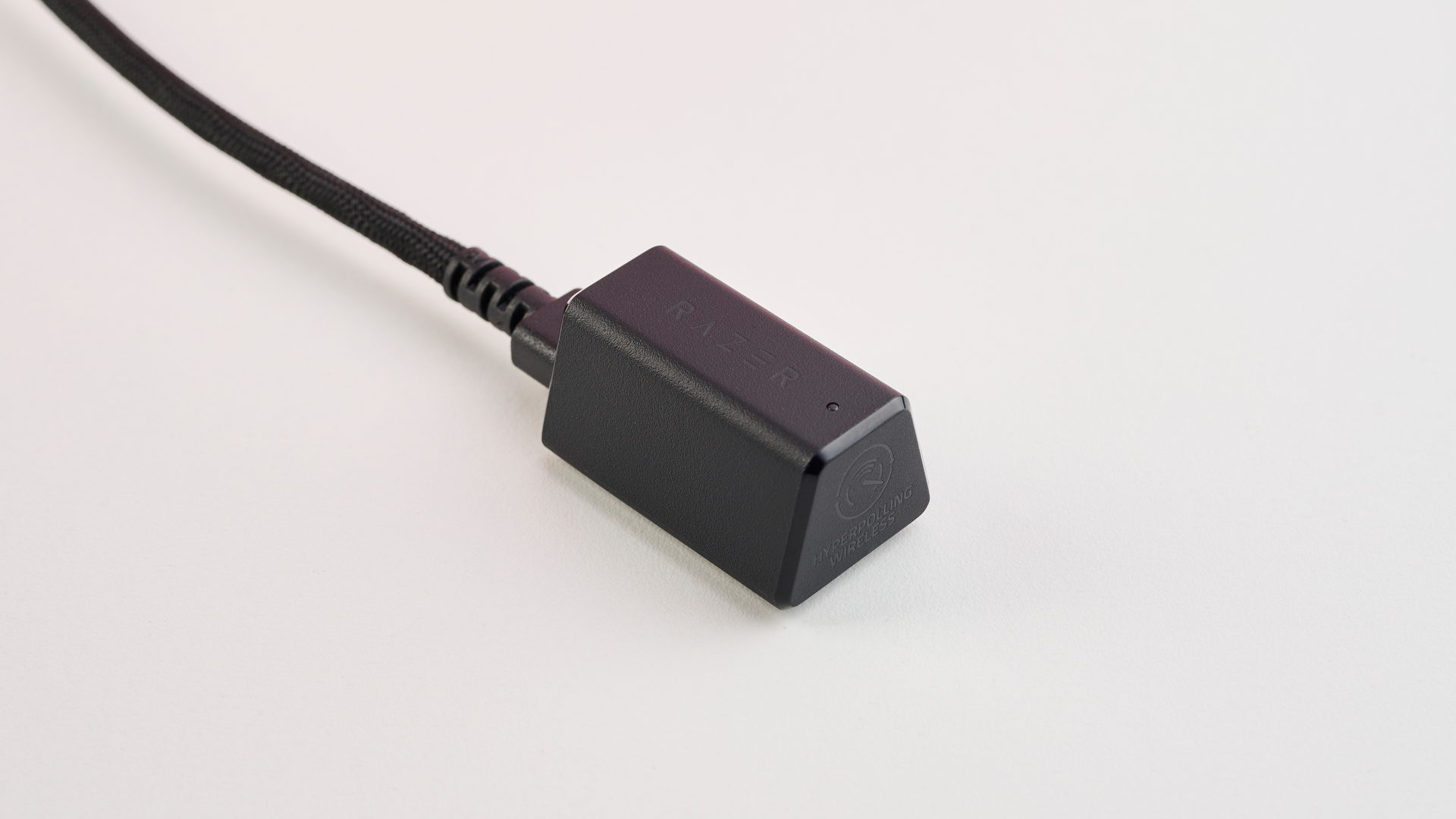
Despite the relative dearth of physical buttons on the Viper V3 Pro, the number of customization options via the Synapse software is mind-boggling. All buttons can be remapped to perform other functions besides their usual defaults – even the left click can be modified to have a secondary function when activating Hypershift mode. Multiple profiles can also be created to easily switch between your desired set of customizations.
Customizable functions range from simple Windows system-level actions – macOS isn’t supported – such as opening an app or putting your PC to sleep to creating a sniper button or cycling DPI resolutions (which rectifies the inaccessibility of the DPI button). You can also record keyboard shortcuts, activate individual keys, and write blocks of text with the press of a single button. The text option even features a full character list with virtually every possible symbol, including those in other languages, and emojis. It’s hard to imagine who would make use of all these functions with their mouse alone, but the fact that Synapse offers this much scope is impressive nonetheless.
There's also the ability to record your own macros and assign them to a mouse button of your choice. (Adding the Macros menu to your instance of Synapse may mean installing the add-on in the Modules menu). It lets you record any input from your mouse and keyboard (even non-Razer ones), adjust their delay times, and set up loops. You can also run commands, and even run macros within other macros.
All of this, in addition to the calibration and setup tools, make Synapse an extremely involved piece of peripheral software with an incredible amount of tweakability. It is the ideal companion for the Viper V3 Pro, which similarly aims for top-level performance – and for the most part, it hits the target.
Razer Viper V3 Pro: Price and availability
- $159 / £159 / AU$279
- Black and White options
- Available now
The Razer Viper V3 Pro is priced at $159 / £159 / AU$279 and comes in two color schemes: black or white. Thanks to the symmetrical design, both right- and left-handers are catered for. It was released on April 23, 2024.
This is Razer’s lightest full-size gaming mouse. The next lightest full-size mouse in its esports line, the DeathAdder V3 Pro, is almost 10g heavier. There is, however, a smaller version – the Viper Mini Signature Edition – which tips the scales at a mere 1.72oz / 49g. This is priced much higher, though, at $279 / £279 / AU$449.
Other lightweight contenders include the ASUS TUF Gaming M4 Air, which comes in at 1.76oz / 50g and is much lower in price ($49 / £39 / AU$69), but it has no wireless option.
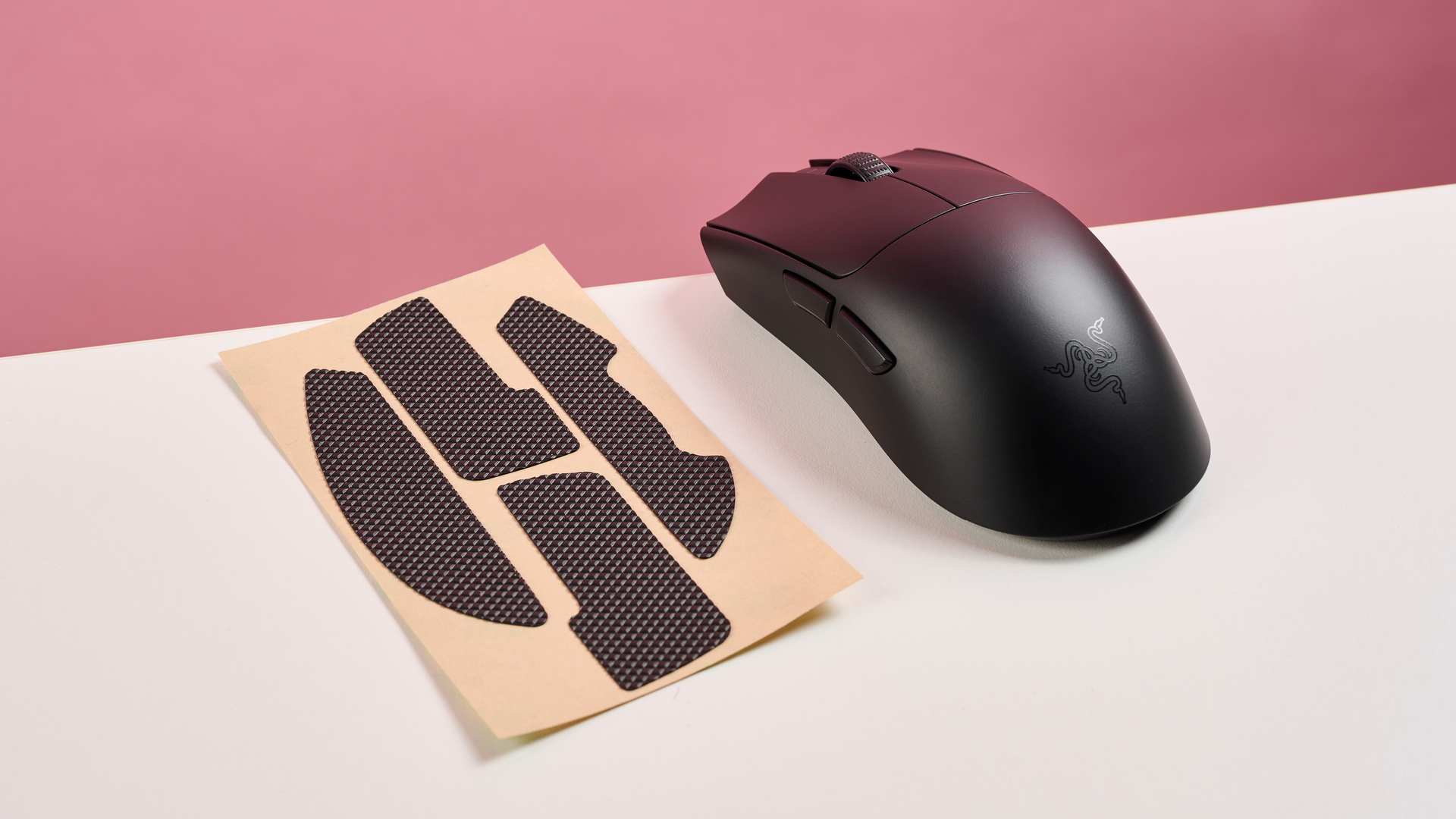
Razer Viper V3 Pro: Specs
Should you buy the Razer Viper V3 Pro?
Buy it if...
Don't buy it if...
Razer Viper V3 Pro: Also consider
How I tested the Razer Viper V3 Pro
- Tested for gaming and general use
- Played competitive FPS and strategy games
- Over a decade of PC gaming experience
I used the Viper V3 Pro for over a week in various scenarios, from gaming to productivity and general use.
I played FPS games such as Counter-Strike 2 and Black Mesa, as well as strategy games like XCOM 2, to cover each end of the gaming spectrum.
I have been PC gaming for over a decade and for the most part, I measured the Viper V3 Pro against my erstwhile companion, the Logitech G502 Lightspeed.
First reviewed May 2024







